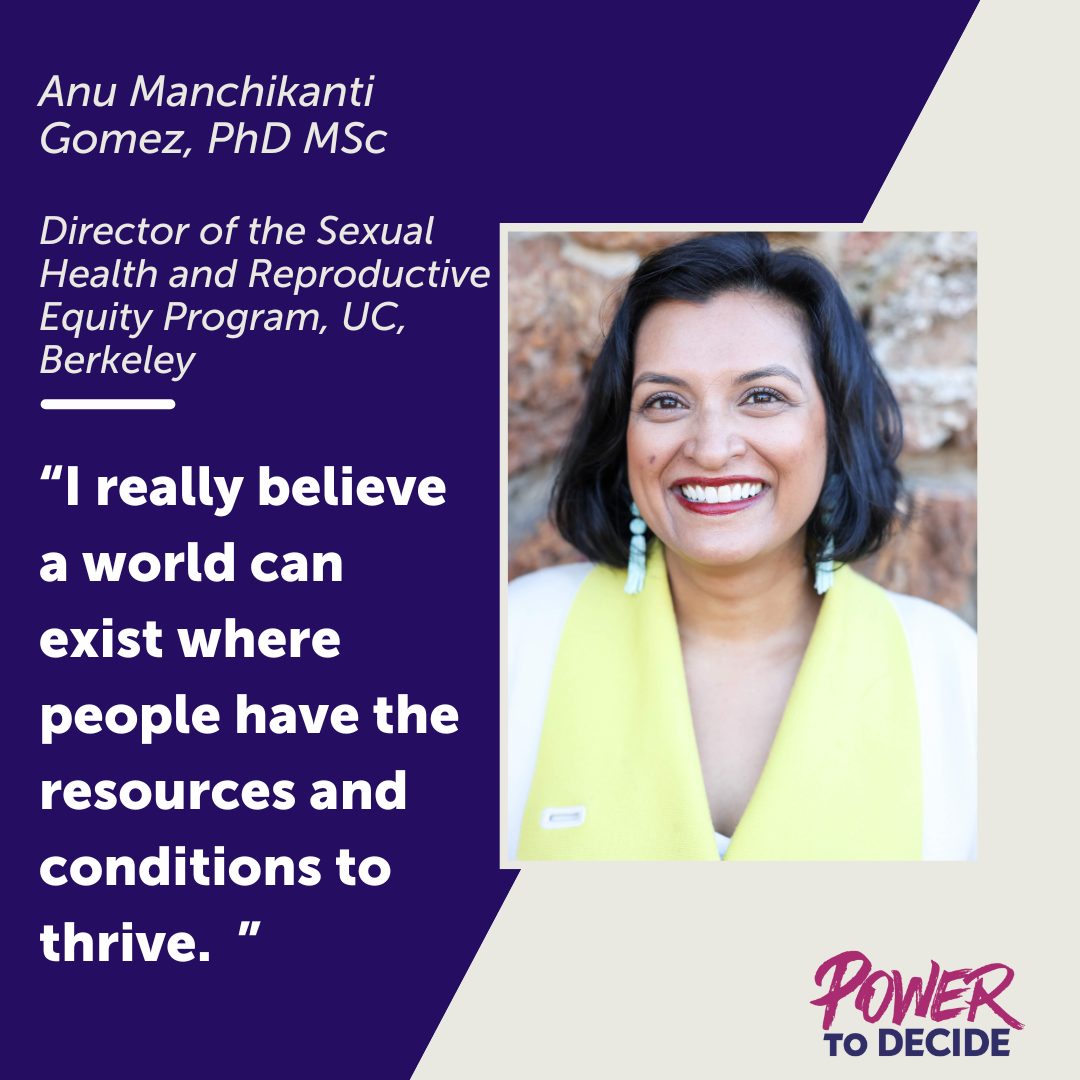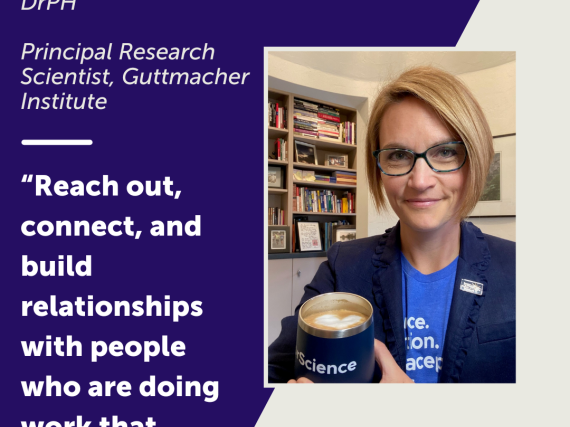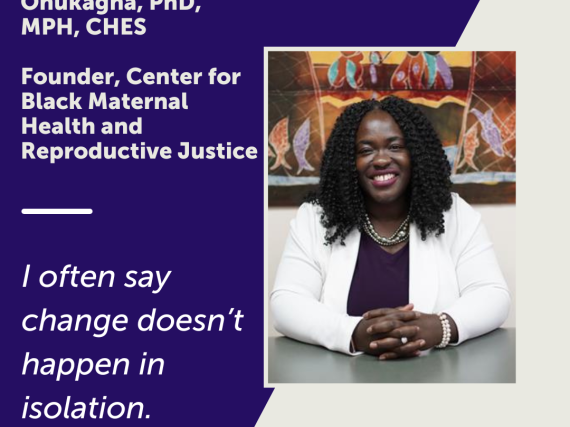September 2024 Power Player
At Power to Decide, we’re committed to uplifting the many individuals on the ground doing the work that matters most. As part of this commitment, we regularly highlight an individual who is championing the effort to support people’s reproductive well-being. Check out our newest Power Player profile.
Anu Manchikanti Gomez, PhD MSc, she/her
Associate Professor of Social Welfare, Director of the Sexual Health and Reproductive Equity Program, University of California, Berkeley
What work have you done to ensure that all people have the information and access they need to make decisions that align with their intentions and improve their reproductive well-being?
I have actively worked in contraception research for 15 years. In that time, I have highlighted people's experiences using contraception, which is so important because those experiences relate directly to the assumptions made by programs, policies, and providers about what people need. Instead of those folks saying what people need, I really have tried to put forth people's voices in terms of their experiences with contraception, how they define their pregnancy preferences and desires, why they want to use certain methods or not use certain methods, and why they want to use contraception or not use it at all.
People's real lives, their perspectives, and how contraception fits in can help us frame our access strategies and clinical care around what they prioritize, which is especially important given some of the legacies of coercive promotion of contraception, forced sterilization, etc. We have a bad track record on that front in the United States, and we keep repeating cycles. I'm trying to do my best to disrupt those cycles.
How did you get started in your field? What is your driving force?
I had a circular journey. I studied journalism as an undergraduate, and I was very gung-ho about being a journalist, but then I kind of burned out. After that, I wanted to take some of the skills and interest I had from journalism to another field. My last journalism internship focused on public health reporting, and that really steered me towards public health research. And then, as the story goes, I got a Master's, did some work, got a PhD, and did some more work.
I’ve also always had an interest in sexual and reproductive health and maternal health and pregnancy. This stems from my personal family background as an immigrant and really seeing the contrast between what family members in India experienced, and what I believed folks in the US experience. I grew up in Kentucky, where we were supposed to have abstinence-based sex ed. But really, we had none. These formative experiences brought these issues to the forefront of my professional interests and passions.
My driving force? I really believe a world can exist where people have the resources and conditions to thrive, including self-determining their reproduction, their sexuality, and their families. Sometimes it's hard to hard to hold on to that as a North Star. But I think that it’s really what Reproductive Justice is telling us and where it sends us. So that is a driving force that I’m always working towards, even when it's hard and even in the face of daunting challenges.
What advice would you give to someone looking to effect change in the field that you currently work in?
I have affected change by being a little different and thinking a little differently. I didn't really know at the time that I was doing it, and it's partially because I didn't have a lot of mentors, so there wasn't necessarily someone more senior saying, ‘Oh, you shouldn't do that,’ or trying to mold me into a conventional way of thinking.
While it's not great to not have mentors, that's why I ended up pursuing research that often doesn’t fit with mainstream ways of thinking. It's okay to be creative and questioning. A lot of things are the way they are for no good reason except that they've always been that way, especially in research. The things we measure and how we ask questions don’t always have a lot of thought behind them (e.g., unmet need for contraception) or weren’t intended to become such foundational constructs (e.g., unintended pregnancy). It's important that we always check ourselves, because if we are going to be a field that claims to be grounded in science, then those actually are issues of scientific rigor, and so we need to always be accountable to that, especially when we think about who we're doing this work for.
Why should someone care about ensuring that all people—regardless of who they are or where they live—have the information and access they need to live their best life?
The answer is in the question. Do you believe that everyone should have the opportunity to live their best life? If you do, then you should care about these issues.
Reproduction, family, sexuality, these are all core to our experiences as human beings. If we don't have the options to make our preferences known and make those preferences happen, then we’re missing that important experience of being human.
We know right now in our society that there are many people who don't have the opportunity to realize those desires because of structural racism and inequality. Maybe not everyone cares about that, but I believe that everyone should care about people being able to thrive because we're all better off because of it.
Is there a highlight of your work that you’d like to share?
I always go back to this paper that I wrote with my colleagues Liza Fuentes and Amy Allina in 2014 called ‘Women or LARC First,’ which seems to have had a big impact on how people think about LARCs and promoting them, and the impact of them. I did that as a baby scholar, but it continues to be cited a lot, and I continue to hear from people who have read it. A journalist reached out to me the other day who is developing a podcast on forced sterilization, and they had read the paper and told me it was helping them connect the issue of forced sterilization to LARC coercion. I'm glad that this work still continues to like help people think about these issues more critically and about how to do better.


